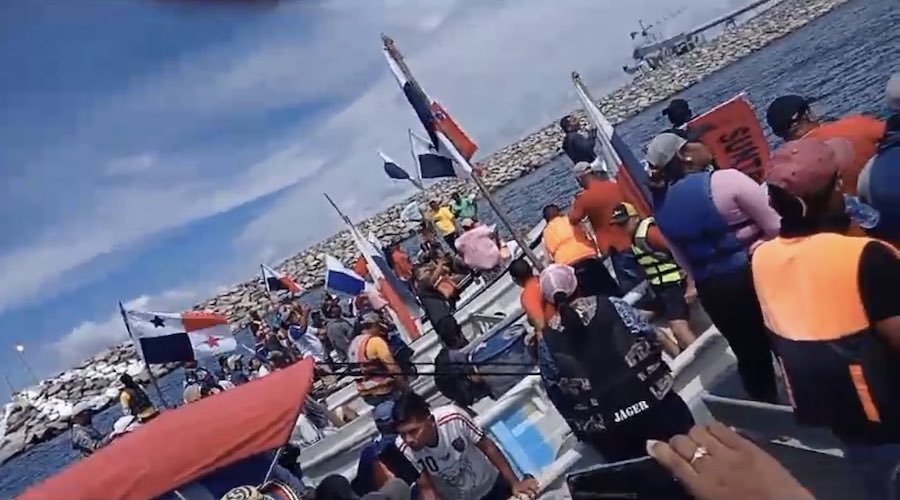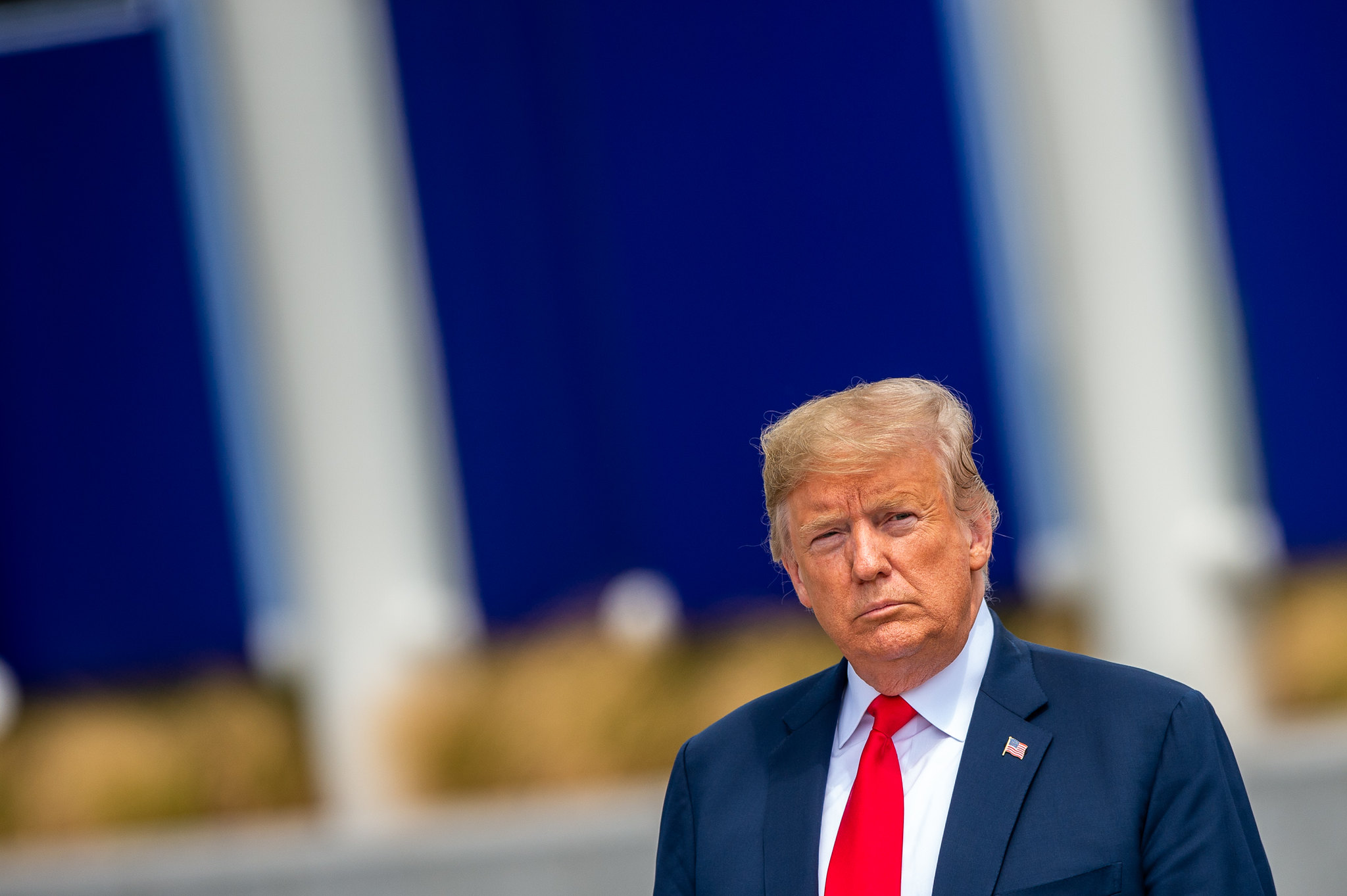First Quantum faces rocky road as Panama protesters dig in

Battered Canadian mining company First Quantum Minerals is bracing for a rocky road ahead as Panama moves to strike down its contract to operate one of the world’s largest copper mines.
Panama’s shock decision on Sunday to call a binding vote on whether to scrap the mine’s recently struck 20-year contract sparked a sell-off in Vancouver-based First Quantum shares. Investors wiped out about C$8.35 billion ($6 billion), or 48%, from the company’s market value this week, registering doubts about First Quantum’s ability to operate its crown jewel.
President Laurentino Cortizo’s decision to call the referendum followed days of protests by thousands of people over concerns the contract is too favorable to First Quantum, involved corruption, and that the mine is harmful to the environment.
First Quantum on Tuesday reaffirmed its commitment to the rule of law with the objective of benefiting Panama. First Quantum and its local unit Minera Panama declined to comment further.
The government is also promoting a bill in Congress to overrule the law enacting the contract and ban all future concessions. Panama’s top court has also agreed to consider six lawsuits challenging the contract.
The stakes are high for both First Quantum and Panama’s economy. A decision to cancel the Cobre Panama mine’s contract could slow Panama’s GDP growth from an anticipated 6% in 2023 to just 1% without the mine in operation on an annualized basis.
The mine, which accounts for approximately 5% of the country’s GDP and supports more than 49,000 direct and indirect jobs, is Panama’s second-largest revenue source after the Panama Canal.
The odds of Panama losing its investment-grade rating would rise significantly if the contract is revoked, J.P Morgan warned on Tuesday. Despite that risk, protests calling for the contract’s termination persist.
Panama should not be “sold for a few cents,” said protester Adriana Linares. “People on the street have a very clear objective, which is to strike down the approved contract.”
The government has not commented on whether the mine must cease production if the contract is rejected.
A spokesperson for Canada’s Global Affairs department, in an email to Reuters, said Canada has consistently advocated for a resolution that benefits all Panamanians and is monitoring the situation.
The mine, which opened in 2019, accounts for 1% of global copper production and cost $11 billion to build. It is considered important to the global energy transition because of its long life of at least 20 years, with copper being an important metal in making electric-vehicle batteries.
Not following a playbook
At least half a dozen analysts downgraded the stock this week.
“This process is not following any playbook that we have seen before.” said Jackie Przybylowski, a mining analyst with Bank of Montreal.
The number of workers per shift has been reduced at the mine due to food shortages prompted by road blockades and protests, Michael Camacho, a leader of the mine’s workers union told Reuters.
Panamanians are set to elect a new president and renew the seats of Congress and local governments in May 2024.
“The timing has been highly unfavorable,” former Finance and Economy Minister Frank De Lima told Reuters, adding the scenario could be different if it was not for the upcoming election.
Most presidential candidates backed the approval of a contract during its negotiations. Members of the ruling party currently hold the majority of the seats in Congress, and backed the new contract.
Independent lawmaker Juan Diego Vasquez, who did not support the contract, told Reuters the ongoing demonstrations show “Panamanians have understood well the damage that having bad lawmakers can do,” adding the protests will influence the outcome of next election.
Another independent lawmaker, Edison Broce, told Reuters that open-pit metal mining is damaging to Panama’s environment, and it should focus on boosting its tourism industry.
Broce is vouching for an orderly and gradual complete shutdown of the mine, as “costs of mining outweigh its benefits.”
($1 = 1.3875 Canadian dollars)
(By Divya Rajagopal, Valentine Hilaire, Elida Moreno and Steve Scherer; Editing by Denny Thomas and Rod Nickel)
{{ commodity.name }}
{{ post.title }}
{{ post.date }}




5 Comments
Ken Yip
I am concerned that there are material errors in your article: https://www.mining.com/web/first-quantum-faces-rocky-road-as-panama-protesters-dig-in/
My understanding is that the Popular Consultation in December is NOT binding. The bill in Congress also does not revoke the mining contract with First Quantum, it is only for holding the Popular Consultation in December. The current government did say it will propose a bill to curb future mining but not scrap Law 406 – the law enacting the mining contract.
If I am wrong, please provide sources and explanation. If the article is inaccurate as I have stated, or you do not have sources supporting the above, please issue a correction as soon as possible to prevent any damage to First Quantum or any of its investors as a result of the errors in your report.
Cecilia Jamasmie
Hello Ken,
Thanks for you feedback. This is a syndicated article, which means we, MINING.COM, didn’t write it. Questions should be directed to Reuters.
Having noted that, I must say that is also my understanding that the bill in Congress is for Panama to be able to hold a referendum in such short notice. The referendum itself will be for Panamanians to vote on whether to revoke the recently-signed contract with First Quantum.
Best regards,
Cecilia Jamasmie
Quick update: Parliament has buried bill to hold referendum and, at the last minute, pulled a provision that would have rescinded the contract that granted to First Quantum. The approved law, however, bans all future mining concessions and contract renewals in Panama.
More here: https://www.mining.com/breaking-panama-congress-revokes-first-quantums-mine-contract/
Garrick Mullin
Such hypocrisy. If Panama is not happy to have a world class copper mine then neither should they be happy to use any product containing copper. No electric cabling, no computers, no solar systems, no electric motors. Let them do without copper. Let the operate their canal systems and cities without copper products
FRANCISCO A. NORIEGA A.
To avoid half truths it is necessary to see the following:
1) Our Constitution establishes that no country may own the stocks of a company in Panama, neither in whole nor in part. First Quatum (FQ) has China, Korea, Singapore, among other countries as shareholders and made the loop hole of forming the company Minera Panama for them to act as sole proprietor and thus hide the true shareholders
2) In the contractual relationship, Panama does NOT appear as a local partner, controlling the percentage that it has with other concessions, that is, 49% the Country & 2% workers
3) FQ has been operating for 20 years knowing that the first Contract was declared Unconstitutional by the Supreme Court of Justice
4) FQ is a foreign company that does NOT pay income tax to Panama, the income tax being 25% for any other company. Signing an illegal agreement does not legalize it
5) Contracting with FQ fails to comply with the Mining Code, which establishes that such concessions must be made through public bidding, and not direct contracting.
6) The contract gives FQ control over land, river water and underground sources, endangering the operation of the Panama Canal, which precisely faces water supply problems. THESE ARE ONLY SOME OF THE MANY POINTS OF INFRINGEMENT IN THE REFERENCED CONTRACT WITH First Quantum